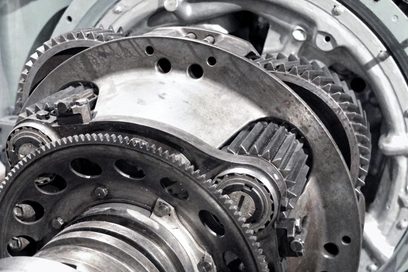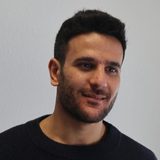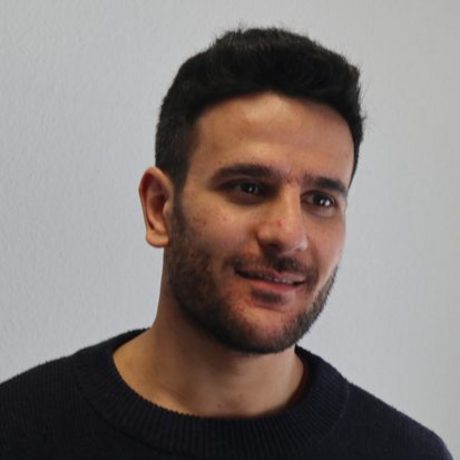Ahmad Sabsabi
Foto: private
Ahmad Sabsabi (30) is completing a dual study programme in mechanical engineering at Kaiserslautern University of Applied Sciences. He is doing his periods of work experience with the tyre manufacturer Michelin.


Ahmad Sabsabi had great plans in his homeland. “I wanted to work as an engineer and had begun to study mechanical engineering in Damascus. But because I wanted to refuse to do military service in Syria, I had to leave that behind me. So I fled to Germany.”
Having arrived here, he learnt German in an integration course and achieved the language level that is necessary for naturalisation. The course was also game-changing for him for another reason: “We were supposed to look for an internship. That is how my vocational training as an industrial mechanic, and later my dual study programme, came about,” he reports.



Ahmad Sabsabi
Foto: private
His course instructor at the Adult Education Centre assisted Ahmad Sabsabi with his application to Michelin Reifenwerke AG & Co. KGaA in Bad Kreuznach. After an interview on site, he was able to complete a three-week internship in the company’s training workshop. That was about four years ago.
When the trainer asked him, at the end of his internship, what he wanted to do next, the answer was clear: he wanted to do a vocational training course. After he had passed an aptitude test, Ahmad Sabsabi was able to sign his training contract.
During the training, he improved his language skills. “Right from the start, I spoke German within the company and learned the technical terms in particular. That was the most difficult thing,” he says. Ahmad Sabsabi completed his vocational training to become an industrial mechanic in three years because of his very good performance – it is supposed to take half a year longer than that. His next goal: to study mechanical engineering. The company supported him here too and offered to act as the industry partner during a dual study programme at Kaiserslautern University of Applied Sciences. “Because of my performance record, it was quite easy to get a place on a course.”
With his training certificate from the Chamber of Industry and Commerce (IHK), Ahmad Sabsabi was able to apply directly to the university. He did not need to have his Syrian school-leaving qualification recognised separately. He also did not need further proof of his language skills. Due to his previous achievements, he was able to join the course in the third semester and immediately decided to specialise in industrial engineering – a choice that is not usually available until the fifth semester.
Theory at the university alternates with work experience at the company. “Whenever I have lectures, I am released from work by Michelin,” explains Ahmad Sabsabi. “In the lecture-free period, I have my periods of work experience.” The two elements also complement one another well in terms of their content: “So far, the course has focused on basic knowledge in the areas of science and engineering. In the in-depth modules, we have machine tools, design, manufacturing engineering or machining, for example. We deal with CAD applications in various projects.”
Ahmad Sabsabi is exploring the subject of design in more depth in the Technical Office at Michelin. “I am familiarising myself with the various engineering software products that are used at Michelin. In joint projects, I am also learning what tasks my colleagues have.” He is currently in a department that is responsible for the optimisation and modification of equipment for the production of rubber compounds.
The 30-year-old can easily imagine staying with his employer after he graduates. “I already know my way around here. I have got to know a lot of departments and a lot of colleagues so far,” he says.
Aktualisiert: 01.09.2021
Vielen Dank für dein Feedback zu dieser Seite! Deine Kritik oder dein Lob zu abi.de kannst du uns gerne auch ergänzend über „Kontakt“ mitteilen. Deine abi» Redaktion
Diese Seite ist erreichbar unter:
https://abi.de/unterstuetzung/start-in-deutschland/from-industrial-mechanic-to-engineer